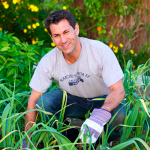Building Self-Reliance In Children
 Virtue, developmental milestone, or perhaps the single most valuable human trait, self-reliance is about the capacity to self-care. Once a child has achieved the notion of existing independently from their caregivers, the optimal parenting position is to assist their child in learning how to transition from receiving and internalizing love and nurturance to applying this function to him or herself. This function is the bedrock of self-esteem and true autonomy.
Virtue, developmental milestone, or perhaps the single most valuable human trait, self-reliance is about the capacity to self-care. Once a child has achieved the notion of existing independently from their caregivers, the optimal parenting position is to assist their child in learning how to transition from receiving and internalizing love and nurturance to applying this function to him or herself. This function is the bedrock of self-esteem and true autonomy.
Each stage of a child’s development comes with age-appropriate self-reliant tasks which, when achieved, pushes that child forward in their individual development. As these tasks are mastered along various stages of development, the child then additionally feels stronger, confident, and less dependent on their parents for doing things for them that they can do for themselves.
Implicit in self-reliance however is the necessity of perseverance and parental encouragement which can often be difficult when children enjoy the benefits of being catered to by their parents. After all, who doesn’t like being nurtured, comforted and provided for? In fact, the conflict between seeking self-reliance versus remaining dependent or reliant on others is the core conflict in the development of children and teenagers alike. On the one hand, most teenagers want independence but on the other they wish to be taken care of due to their discomfort with the multitude of changes and challenges facing them on a daily basis lowering their already unstable self-esteem. Here, parents fall into their own conflicts over providing for their seemingly vulnerable child versus insisting on pushing them to work it out themselves with you the parent as their Mentor. How these conflicts are managed have a significant effect on how well the child will weather the throws of adolescence and for the teens, how well they will endure the tasks of young adulthood.
Parents who insist on their children to be self-reliant for their particular age tend to produce healthier offspring than those who continue to placate their child by doing too much for them. In fact, in the extreme cases of parents failing to hold their kids responsible for self-care invariably create a sense of ongoing dependency on their parents which leaves the child feeling angry and needy. If this pattern continues through high school, then the college bound young adult does not feel or perform independent enough to successfully function well enough away from home.
Parents can help their children develop a healthy sense of self-reliance by both encouraging and insisting that their child performs tasks that they can functionally master at each age. Take toilet training for example. If parents did not insist that their toddler stop wearing diapers and use the toilet, most children would remain in diapers and then pull-ups far beyond what their body is capable of managing. Here, the initially resistant toddler refuses to use the toilet but when finally does, feels like a bigger boy and girl enhancing their development and growth. Vitally, the parent must tolerate their child’s potential complaining and even regressing when placed in the position of self-care, but once the child can witness their own success, a new level of self-reliant achievement and esteem is reached and the child actually becomes less anxious, more mature, and even more respectful.
Self-reliance is a virtue that is additionally needed for a child to be able to care for others and is an achievement that children can additionally teach to their peers. Recognizing one’s internal strength and practicing this attribute leads to a high functioning and helpful individual.
______________________________________________________________
Dr. Keith Kanner is a Licensed and Board Certified Clinical Child, Adolescent, and Adult Psychologist and Psychoanalyst. In addition to a full-time private practice in Rancho Santa Fe, California, he is an Assistant Clinical Professor of Psychiatry in the School of Medicine at the University of California San Diego where he teaches both human development and also trains medical students how to better understand and relate to their patients. He also serves as the Director of Clinical Counseling for La Jolla Country Day School in La Jolla, California, and is a Clinical Professor at The San Diego Psychoanalytic Society and Institute. Dr. Kanner also sits on the National Board of Directors for Kids Korps USA, which is the largest organization in the country that teaches children and adolescents the importance of volunteering to help the community at large. As a father of three children, he is also a dedicated baseball, football, and soccer coach.










You must be logged in to post a comment Login